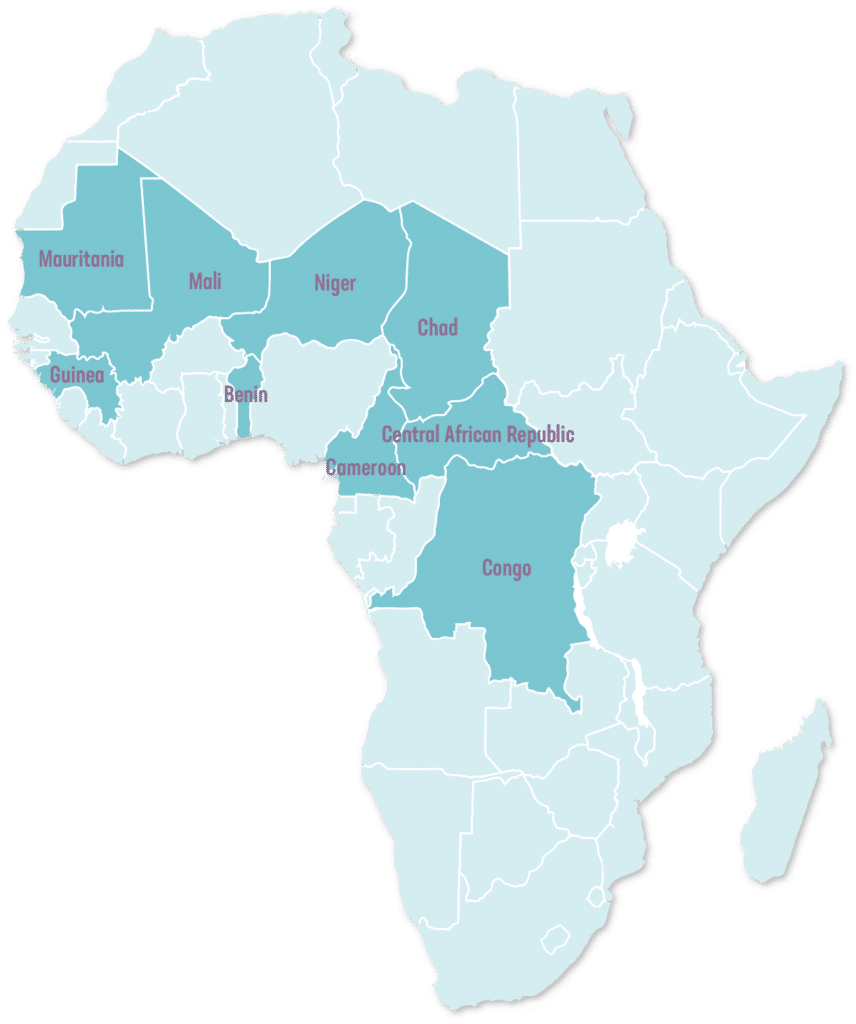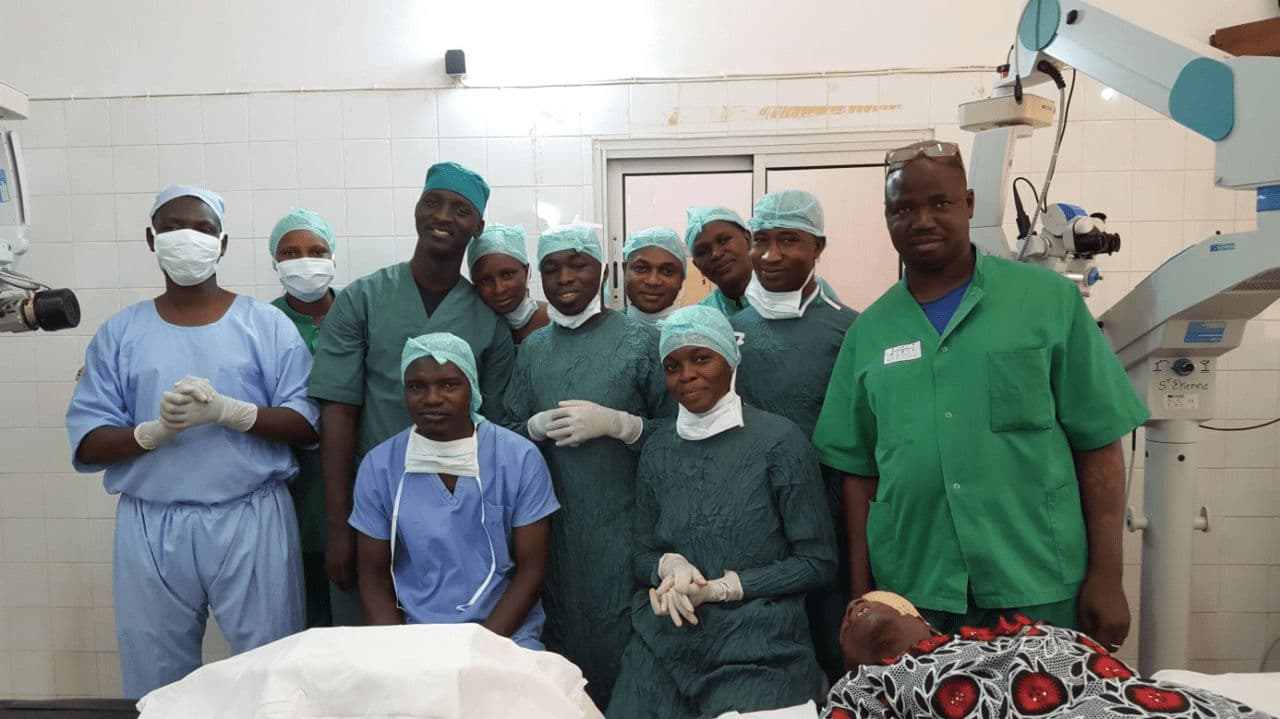Mission
OPC has five components to its mission:
- Promote and implement projects and solutions to fight blindness and impaired vision.
- Contribute and encourage all initiatives in the areas of eye care and blindness prevention.
- Conduct epidemiological studies on the causes of total or partial vision loss.
- Organize and promote advocacy campaigns designed to increase public awareness about the extent and severity of blindness in French-speaking African countries.
- Develop human resources in the field of eye health.
These key components inform OPC’s actions, including:
- Establish and/or strength eye care programs.
- Build mechanisms to ensure the sustainability of eye health activities.
- Empower local teams of eye health professionals.
- Share knowledge and train human resources in ophthalmology and best practices.
Approach
OPC develops programs in collaboration with partner countries and their Ministries of Health, which have ownership of all programs and are responsible for program implementation.
The development and implementation of any given program goes through 4 phases:
1. Situation analysis and program planning
This stage involves OPC in discussion with the Ministry of Health and local civil society organizations of the country to:
- Estimate the eye health needs as per services delivered to patients by the available eye health workforce.
- Identify the health policies needed either to be improved or to be developed.
- Estimate the necessary means to reach set targets in the most efficient, effective way possible.
This step is done through a technical visit of an OPC team member followed by a national workshop supported by OPC. The purpose of this workshop is to create a draft program and determine the priorities of locations and level of intervention.
2. Program approval and fundraising
The draft program is presented to the Ministry of Health and a memorandum of understanding is signed between the Ministry and OPC. This allows OPC to begin searching for project funding.
3. Program implementation
Program activities are implemented by the Ministry of Health human resources. OPC and local civil society organizations supervise and monitor the program implementation either together or individually. Accounting and finances are overseen by independent fiduciary agents.
4. Evaluation and recommendations
All OPC programs end with a final evaluation led by independent experts while account and finances are audited by an independent entity. The final report and the partners’ agreed upon recommendations are made available to the partners, the program donor(s), experts and auditors.
Expertise
For over 40 years, OPC has been the expert nonprofit partner working in Francophone Africa. Thanks to our team’s expertise, understanding and respect for local contexts and longstanding relationships with stakeholders at the national, regional and local level, OPC is the trusted partner to develop and implement inclusive comprehensive eye health care programs in more than 10 French-speaking African countries.
Jump to section
Why Francophone Africa?
Francophone Africa is frequently overlooked by international development stakeholders when it comes to fighting blindness, restoring sight and providing access to quality eye health care. In fact, French-speaking African countries receive far less foreign aid funding compared to English-speaking African countries. For example, Benin receives 5 times less support for eye health than Kenya and 15 times less than Namibia.
OPC works with governments, civil society organizations and communities to fight blindness, restore vision, encourage local ownership of eye health care systems and ensure the human right to sight.

